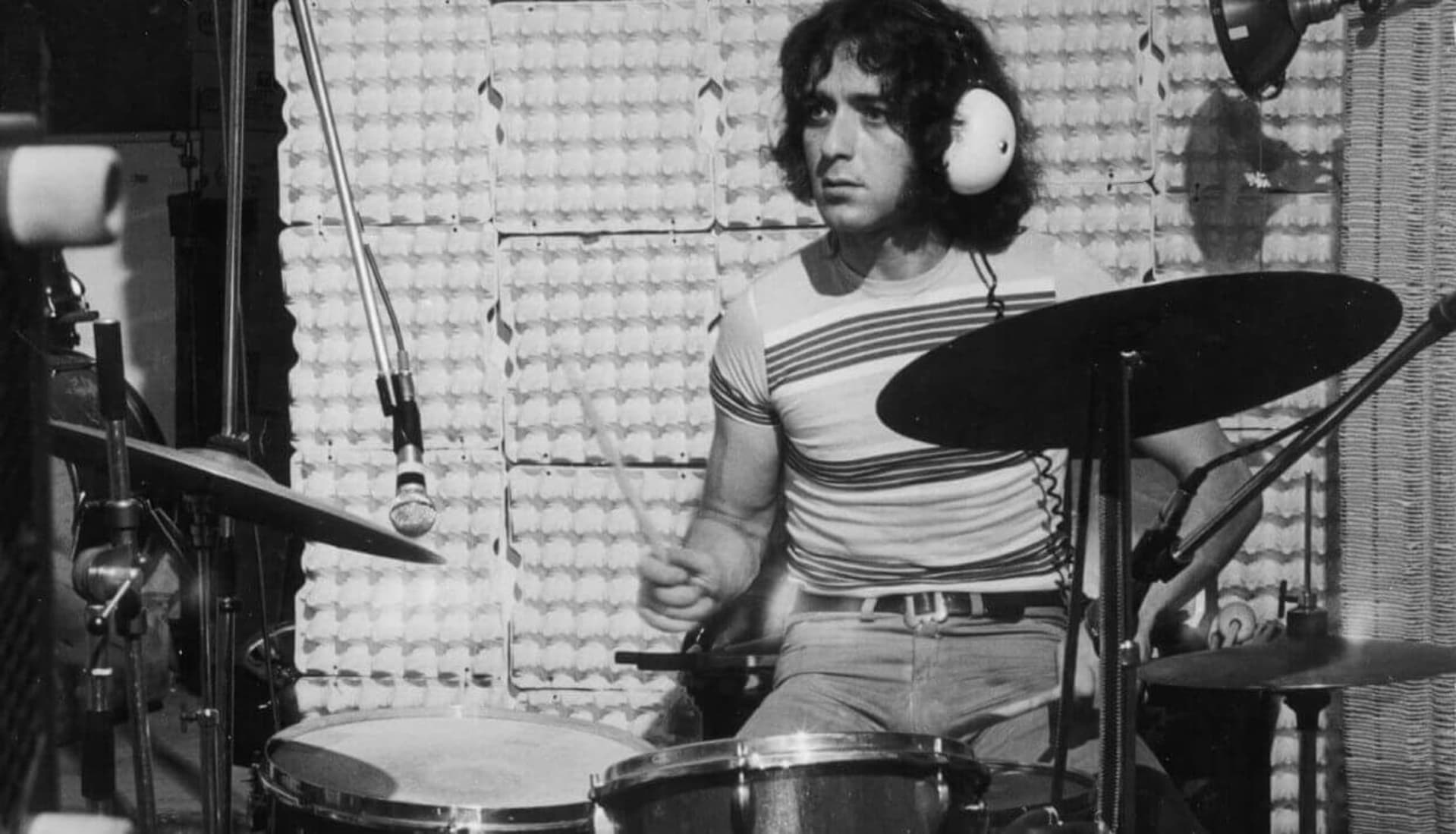
RIP Jaki Liebezeit: The Influential Drummer Who Co-Founded Can
By Daniel Gottlieb
In 1968, a year bursting with political upheaval across Europe, Jaki Liebezeit founded the band Can alongside Irmin Schmidt, Holger Czukay, David Johnson and Michael Karoli. While rationalizing music via its social landscape often treads a dangerous line between contextualization and hollow myth-making, Can’s emergence at the time felt entirely fitting. The band was a decisive—and utterly contemporary—rupture from the strictures of musical disciplines and formulae; a manifestation of a change in thought that also felt like the sonic condensation of the revolutionary fervor of the time. In fact, it was Liebezeit himself who suggested that the name Can could quite appropriately stand for “Communism, Anarchism, Nihilism.”
Liebezeit’s cheeky provocation can be interpreted in many ways, but the vitality of Can’s music was clearly due to the combination of tight synchronicity, spontaneity and an absolute irreverence towards the rigid standards of the proceeding generation’s idea of “music.” The search for true originality as a way of breaking with the past: this is the ethic that exudes from every note on a Can record. This striving for the new brought the band into surprising encounters with emerging genres and (at the time) marginalized musical styles. On the “classic” records Tago Mago, Ege Bamyasi and Future Days, Can combined classical musicianship with funk and jazz’s improvisational impulses and a fascination with the immediacy and urgency of rock n’ roll. Add to that an avant-garde thirst for new sonic experimentation—two of its members had studied under Stockhausen—and you have three of the most brilliant moments in modern recording history. At their most extraordinary, Can’s music seemed to provide a glimpse into an alternative future of music.
At the very heart of this musical juggernaut was the irrepressible drumming of Jaki Liebezeit. Born in 1939, in Dresden, Liebezeit was once considered one of Germany’s premiere jazz drummers. He performed with the likes of Chet Baker and played as a member of the influential Manfred Schoof Quintet. The fluidity and precision of Liebezeit’s jazz chops are noticeable throughout Can’s discography, but it was his ability to fuse them with a metronomic—some might say robotic—discipline that would lead to some of his most distinctive grooves. Tracks like “Halleluhwah” from Tago Mago capture Jaki at his propulsive and thrashing best. You can also just as easily lose yourself in the beautiful, subtle percussion work on “Future Days” that gives the song its restrained, psychedelic depth. In entirely different ways, both tracks showcase his instinct for creating hypnotic grooves that use repetition and subtle variation over extended and complex rhythmic cycles to remarkable effect.
Over the course of his career, Liebezeit worked with musicians as prestigious and diverse as Brian Eno, Jah Wobble, Harold Budd and Philip Jeck. He lent his distinct rhythms to music styles that spanned dub, art-rock, ambient, pop and electronica. In more recent years, he worked closely with German electronic composer Burnt Friedman on the Secret Rhythms series, a project which sought to upset electronic music’s natural reluctance to wander outside the framework of pre-set and established rhythms. Before his death, he was planning “The Can Project” with Irmin Schmidt and original Can vocalist Malcolm Mooney alongside the London Symphony Orchestra. It would have premiered in April at the Barbican Centre in London.
To return to the legacy of Can on the the sad occasion of Jaki Liebezeit’s passing is only to underline just how fundamental to this incredible band he once was. It’s impossible not to hear his rhythmic genius woven into the very fabric of the group. To celebrate the work of a drummer as singular as Jaki Liebezeit is to celebrate the integrity of a musician who tirelessly sought to explore new forms of music at a time of relative creative stagnation. For his faith in the future of music alone, he will be dearly remembered and sorely missed.
Published January 24, 2017.
